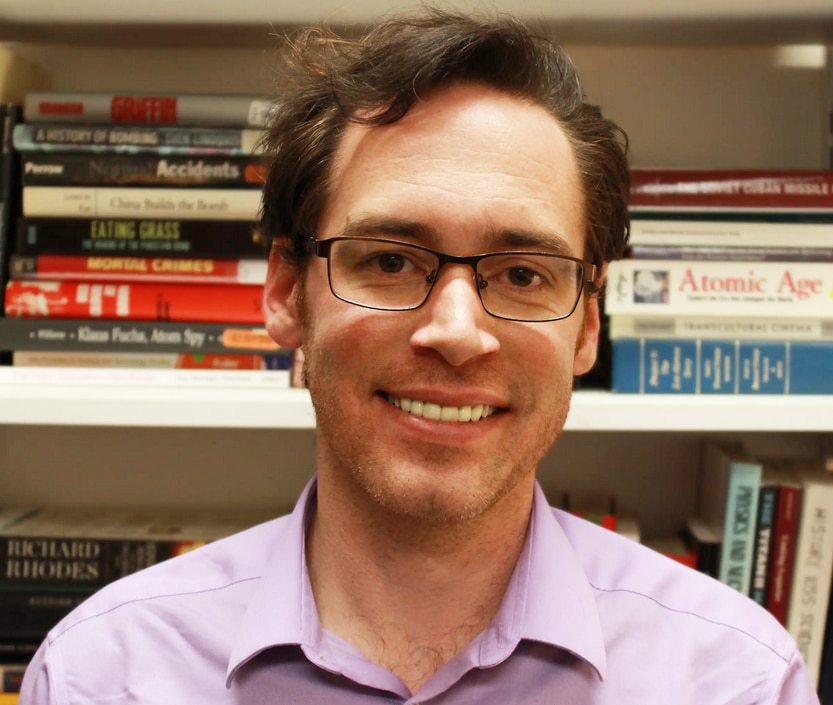 Historian of Nuclear Weapons, Alex Wellerstein discusses Manhattan Project Secrecy at 6 p.m., Nov. 17 as part of the Los Alamos Historical Society Lecture Series. Courtesy/LAHS
Historian of Nuclear Weapons, Alex Wellerstein discusses Manhattan Project Secrecy at 6 p.m., Nov. 17 as part of the Los Alamos Historical Society Lecture Series. Courtesy/LAHS
Los Alamos Historical Society News:
Join the Los Alamos Historical Society online at 6 p.m. Nov. 17 for Alex Wellerstein’s lecture “The Best-Kept Secret of the War’? The Successes and Failures of Manhattan Project Secrecy.”
How successful was the Manhattan Project at keeping the atomic bomb a secret—and what were the Project’s goals for secrecy in the first place?
Historical Society lectures are free, but registration is required to provide you with the Zoom link. Lectures are limited to 100 participants, so sign up early to reserve your spot.
To register, visit www.losalamoshistory.org/events and follow the links to our EventBrite page.
In the wake of the bombing of Hiroshima, the Manhattan Project was lauded by the press as the “best-kept secret of the war.” In some ways, this is accurate: despite a workforce of some half a million Americans, the first use of the atomic bomb was largely kept secret and achieved the shocking effect that was intended. In some ways, this is inaccurate: by 1950, it had become clear that the project had been penetrated by multiple Soviet spies.
In this talk, the Manhattan Project’s security regime will be deconstructed and analyzed as to its multiple goals (which included far more than simply keeping information about the project from the Germans, Japanese, or Soviet Union), and why it was “successful” at achieving some of these goals but utterly failed at others. Ultimately this approach realigns our understanding of what secrecy regimes are, how they work (and why they sometimes don’t), and the key differences between the secrecy of World War II and the Cold War that followed.
Alex Wellerstein is a historian of nuclear weapons, and his first book, Restricted Data: The History of Nuclear Secrecy in the United States is being published by the University of Chicago Press in early 2021. He is an assistant professor and the Director of Science and Technology Studies at the Stevens Institute of Technology, in Hoboken, New Jersey. He received his PhD in History of Science from Harvard University in 2010.
The Los Alamos Historical Society lecture series is made possible by the generous sponsorship of Enterprise Bank & Trust, Member FDIC; the National Endowment for the Humanities; the New Mexico Humanities Council; and Robin and Richard McLean.
The Los Alamos Historical Society preserves, promotes, and communicates the remarkable history and inspiring stories of Los Alamos and its people for our community, for the global audience, and for future generations. More information about the Historical Society can be found at www.losalamoshistory.org.
Stay up to date with the latest news from the Historical Society by following @LosAlamosHistory on Facebook and Instagram. Our members make all our work possible. Join us today at https://www.losalamoshistory.org/membership.html.

